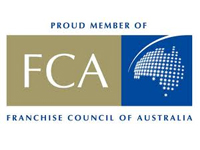
Strategies to drive bookings & increase online visibility
Tapping into the expertise of three industry insiders who share some valuable tips and techniques on maximising revenue
In today’s competitive digital landscape, it’s essential for accommodation operators to leverage effective strategies to drive direct bookings and increase online visibility.
By implementing the right techniques, they can stay ahead of the competition and maximise revenue potential.
Our latest AccomNews print issue is available now. Read it HERE
AccomNews tapped into the expertise of three industry insiders who shared some valuable tips and techniques.
When it comes to driving direct bookings, HiRUM Marketing Manager Nikita Johnston said while it can be overwhelming to know where to start, there were key areas to prioritise. First, accommodation operators should enhance their website.

She said: “Your website is your online shopfront, so it’s crucial to make a positive impression. Ensure that your website is visually appealing, user-friendly, and optimised for all devices.”
Also: “Make the booking process is as smooth and hassle-free as possible. Integrate a user-friendly booking engine directly into your website, enabling guests to easily check availability, select their desired dates, and complete their reservations within three clicks.”
RMS Cloud Chief Sales Officer Stephen Martin said empowering accommodation providers to leverage Google Hotel ads was key to driving more direct bookings to your website.
“Google Hotel Ads places them front and centre on the availability search screen, driving direct bookings and preventing them from being overshadowed by OTAs,” he said.
“By seizing this opportunity, hotels can stay in control, ensuring potential guests see their official website and book directly, avoiding the risk of losing out to free advertising and price comparisons.
“When advising our customers on driving direct bookings, I emphasise the importance of clear market segmentation to target your customers effectively.
“By delivering tailored messages that resonate with their needs and preferences, you enhance engagement and increase the likelihood of direct bookings.
“You will see results if you speak directly to your customers, capture their attention, and inspire them to book with personalised and relevant marketing material.”
ROOMSTAY CEO Declan Mimnagh said: “One of the top strategies for driving direct bookings is brand protection. It’s crucial to ensure that your web direct prices are in price parity with OTAs and wholesalers.
“This helps maintain control across channels and make sure that on first touch when a user searches, your hotel’s web direct prices are equal to OTAs and other channels.
“Additionally, protecting your brand on branded searches is essential. When users search for your hotel by name in Google, it’s important to prevent OTAs from bidding on those branded searches.
“We often see hotels competing with OTAs in upper funnel searches like ‘Sydney hotels’ and spend all their budget there. Whereas we recommend hotels start with a defence strategy to protect their brand on branded searches and drive branded search volume into the hotel’s website to book direct.”
While direct booking is the goal, HiRUM’s Nikita Johnston said that harnessing the power of OTAs can be a game-changer, importantly they allow your property to gain visibility.
“OTAs provide a significant marketing opportunity by exposing your property to a wide audience.
“While commission fees may be a concern, the visibility and reach offered by OTAs are invaluable. Listing on OTAs ensures your property is seen by potential guests who may not have found you otherwise.
Additionally, Ms Johnston said the relationships built through engaging with OTAs could prove beneficial for future bookings.
“When guests book through OTAs, use the opportunity to gather their contact information and build a relationship from the moment they book,” she said.

Mr Martin, RMS said OTA tools can benefit accommodation managers, providing valuable insight into the market.
“It is important to recognise your hotel and brand pricing matches the competitive set and the broader market, ensuring you are relevant,” he said.
“Leveraging tools like OTA Insight can be instrumental in staying on top of your pricing. Using rate shoppers, revenue managers can efficiently track and analyse all available rates online, saving time and ensuring accurate rate pricing. This data-driven approach provides valuable insights into your competitors’ pricing, enabling you to make informed decisions and maintain a strong competitive advantage.”
Another way to tap into the power of OTAs is to maintain rate parity.
He said: “Inconsistencies in prices across different OTAs can prompt guests to price shop, cheapening your brand. By implementing a rate parity strategy, you instil confidence in your customers, assuring them that the price remains the same on all channels.”
ROOMSTAY’s Mr Mimnagh agreed that rate parity was imperative when working alongside OTAs.
He said: “To harness the power of OTAs effectively, it’s important to optimise your hotel’s presence on these platforms and have a separate strategy for marketing your hotel brand on OTAs. Start by ensuring price parity between your web direct prices and those offered by OTAs.”
Channel managers are essential tools that simplify the distribution of inventory across multiple platforms.
Ms Johnston, HiRUM, said enhanced visibility was a clear benefit.
“By using a channel manager, you can ensure your property is visible on multiple channels where potential guests are actively searching.
“This increased visibility improves your chances of attracting bookings and reaching a wider audience,” she said.
Ms Johnston added that utilising a channel manager can help avoid double bookings and avoid guest disappointment.
“Channel managers prevent double bookings by automatically syncing your rates and availability across all connected platforms,” she said.
“This eliminates the need for manual updates, reducing the risk of human errors and saving you valuable time and resources.”
RMS Cloud’s, Mr Martin said that the benefits of a channel manager were twofold. “Two key benefits of using a channel manager that are highly significant and come to mind are time-saving benefits and speed,” he said.
“Firstly, it offers immense time savings benefits by eliminating the need to update rates on each extranet individually. With a channel manager, a single price input instantly updates across all channels, streamlining the process and reducing human error.
“Secondly, integrating a powerful PMS with Direct Connect channel management capabilities enhances your rate management performance.
“Rate changes can be quickly and automatically updated through your PMS across your various OTAs such as booking.com and Expedia, ensuring accuracy and efficiency in distribution.”
Mr Mimnagh said he often saw hotels overcomplicate distribution.
“Simplifying the distribution of inventory across multiple platforms can be achieved by adopting a streamlined approach,” he said.
“Avoid duplicating rates or managing different rates for various channels. Instead, utilise a base set of rates that can be shared across all channels, including web direct and OTAs.

“This approach eliminates operational overheads and simplifies rate management. To further optimise distribution, consider creating tactical rates specific to your web direct channel. These rates can be exclusive offers or promotions that are not available on OTAs.
“By centralising your rates and avoiding unnecessary duplication, you can save time and effort in managing inventory across multiple platforms. The benefits of simplifying distribution include improved operational efficiency, reduced rate management complexities, and better control over inventory.
“It allows you to maintain consistent pricing across channels and focus on strategic rate management to maximise revenue.”
On expanding your online presence Ms Johnston said one of her top tips was to look beyond OTAs and include social media platforms and Google Business.
Then, she suggests optimising your Google Business account to ensure that travellers can easily find your property when searching.
“Pay attention to details such as accurate contact information, high-quality images, and positive guest reviews,” she said.
Additionally, maximise your online visibility by leveraging the power of advertising platforms such as Google Ads and meta-advertising.
“These tools drive targeted traffic to your website and enhance your visibility in search engine results,” she said.
Mr Mimnagh said you want to be found, so optimise your search engine placement in Google by implementing SEO (search engine optimisation) and SEM (search engine marketing) techniques. Also, “establish your hotel as an authority and focus on longer tail keyword searches that align with your unique offerings”.
He said: “Leverage your expertise in the local area and provide valuable content that matches the search intent of potential guests.”
Finally, Mr Martin emphasised the importance of positive online reviews.
“To boost your hotel’s online visibility, focus on key strategies like maintaining high property scores and positive reviews,” he said.
“These factors play a vital role in increasing rankings and attracting more bookings, making them essential for building an online presence.”
Sarah is a freelance journalist with experience across print, digital and audio. After working for Multimedia Publishing as a contributing writer, she has recently joined the team in a part-time capacity for School News AU and AccomNews.







